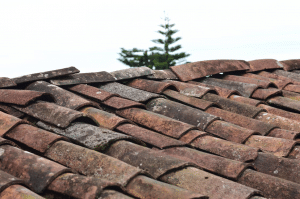At Layton Roofer, we understand that a roof replacement can be a significant investment for homeowners. Whether your roof has reached its lifespan or has sustained severe damage, it’s essential to consider the cost and plan your budget accordingly. In this blog post, we will discuss the factors that contribute to the cost of roof replacement and provide you with valuable budgeting tips to make the process more manageable.
Factors Affecting the Cost of Roof Replacement
- Roof Size and Complexity: The size of your roof is one of the primary factors determining the cost. Larger roofs require more materials and labor, which can increase the overall expense. Additionally, roofs with complex architectural designs or multiple slopes may require extra time and effort, impacting the cost.
- Roofing Material: The type of roofing material you choose plays a significant role in the cost of replacement. Different materials have varying prices per square foot, with some being more expensive than others. Asphalt shingles are generally more affordable, while metal, slate, or tile roofs tend to be pricier.
- Roofing Accessibility: The accessibility of your roof also affects the cost. If your roof is easily accessible and poses no significant challenges to the roofing crew, the labor costs may be lower. However, if your roof has limited access or obstacles such as chimneys or skylights, it may require additional labor and equipment, increasing the overall cost.
- Removal of Old Roofing Material: If your existing roof needs to be removed before installing the new one, this will add to the cost. The labor and disposal fees associated with removing the old roofing material can vary depending on the type of material and the complexity of the removal process.
- Roofing Permits and Codes: Obtaining the necessary permits and complying with local building codes is an essential part of any roof replacement project. The cost of permits and any required inspections can vary depending on your location.
- Additional Features and Upgrades: If you choose to add extra features or upgrades to your new roof, such as skylights, ventilation systems, or solar panels, these additions will increase the overall cost. While they provide long-term benefits, it’s important to factor in the additional expenses when budgeting for your roof replacement.
Budgeting Tips for Roof Replacement
Now that you’re aware of the factors that impact the cost of roof replacement, here are some budgeting tips to help you plan accordingly:
1. Research and Get Multiple Quotes
Take the time to research different roofing contractors and request quotes from multiple sources. This will give you a better understanding of the average cost in your area and help you make an informed decision. Be cautious of extremely low quotes, as they may indicate subpar materials or workmanship.
2. Consider Long-Term Value
While it’s important to stick to your budget, it’s equally crucial to consider the long-term value of your investment. Opting for higher-quality materials and experienced roofing professionals may cost more initially but can save you money in the long run by reducing the need for frequent repairs or premature replacement.
3. Plan for Contingencies
During a roof replacement project, unexpected issues may arise, such as hidden damage or structural repairs. It’s wise to set aside a contingency fund of around 10% of the total project cost to account for any unforeseen expenses.
4. Explore Financing Options
If your roof replacement cost exceeds your available funds, consider exploring financing options. Many roofing companies offer financing plans or can provide guidance on obtaining home improvement loans. Evaluate the terms and interest rates carefully to choose the best option for your situation.
5. Schedule the Project Wisely
Timing can also impact the cost of your roof replacement. Consider scheduling the project during the off-peak season when roofing companies may offer discounts or have more flexible pricing. However, balance this with the need to address urgent roofing issues promptly to avoid further damage to your home.
6. Maintain Regular Roof Maintenance
To extend the lifespan of your new roof and minimize the need for premature replacement, make sure to invest in regular roof maintenance. Schedule periodic inspections and address any minor issues promptly to prevent them from turning into major problems.
Conclusion
Replacing your roof is a significant investment, and understanding the factors that contribute to the cost is essential for effective budgeting. Consider the size and complexity of your roof, the chosen roofing material, accessibility, removal of old material, permits, and any additional features or upgrades. Remember to research and obtain multiple quotes, consider long-term value, plan for contingencies, explore financing options if needed, and schedule the project strategically. By following these budgeting tips and working with professionals like Layton Roofer, you can navigate the cost of roof replacement and ensure a successful project that protects your home for years to come.
To get started with your roof replacement project, contact Layton Roofer at (801) 701-3276 or visit our website here. Our experienced team is ready to provide you with exceptional roofing services and guide you through every step of the process.




